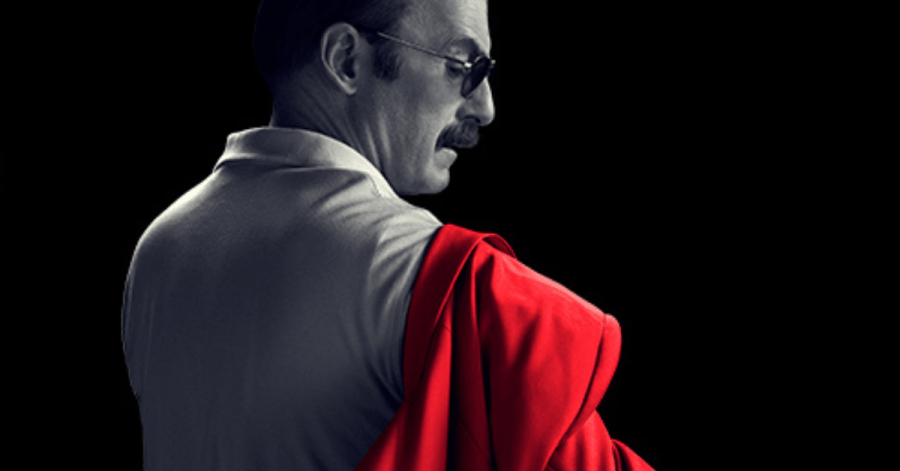When AMC gave us “Better Call Saul” as a spinoff of “Breaking Bad”, fans were thrilled to see the full story of one of the most interesting characters in the masterful series. And the showman that he is, Jimmy Mcgill, aka Saul Goodman, built his own loyal audience, much like he did in the movie’s plot, as a lawyer of the unrepresented.
How did he do it? Questionable reasons and shadiness aside, Saul was a top-notch salesman and a master of local marketing. With that in mind, we broke down five “Better Call Saul” lessons for sales teams.
#1 Create a memorable brand name
It’s no secret that choosing your brand’s name is one of the most important decisions you will make. Names are among the first elements that can help trigger your brand from your client’s memory. To make them forgettable is a missed opportunity.
“Saul Goodman” certainly has the stickiness factor. The name is a pun on “It’s all good, man”, making it original, as well as catchy and easy to remember. A good name also brings up emotions, which can in turn influence decisions. “Saul Goodman” is suggestive of a positive feeling, an association anyone wants for their clients. It also conveys, with subtlety, a key benefit of Jimmy’s lawyer services: solving problems for his customers no matter what.
#2 Know your customers – truly know them
As the show progresses, Jimmy McGill channels his entrepreneurial spirit many times, often spotting business opportunities where others couldn’t. But most importantly, his ability to understand the customer’s needs and create the perfect positioning and sales pitch is uncanny.
At the beginning of his lawyer practice, Saul Goodman turns his attention to an underserved market: the elderly. Soon, he uncovers wrongdoing by an assisted-living facility chain on his clients, which leads to building a class-action lawsuit.
In the process of collecting clients for the case, Saul masterfully uses his customer knowledge and storytelling abilities to connect with people and convince them to trust him. The bus scene shows his craftsmanship:
“I know that the good people of Sandpiper wanna make this right, sooner than later. But you know what? Sometimes it’s just easier if you get your nephew Steve to go take care of it for you. And that’s how I want you to think of me.”
To get to know his customers, Saul did everything but place them in a rigid category. He talked extensively to potential clients, but also got close to them by joining their activities (bingo games in retiring homes), as well as offered to translate the legalese of bills for them.
#3 Sell benefits, not features
Another marketing and sales tip in our Better Call Saul lessons is to focus on your product or service’s benefits, and not the features.
While your tech startup team may be loving and praising the technical aspects of the product (and for good reason), the client likely has zero interest in what you built, unless he knows how it benefits him. Translating your tech team’s language into your customer’s language is paramount to your marketing and sales efforts.
We see it first hand in Better Call Saul, when Jimmy, now disbarred from law practice, works in a cell phone store and tries to sell flip phones, a product that wasn’t generating any interest at the time.
Turning things around in his usual fashion, Jimmy was able to identify a niche market for which the phones could be useful, and spin the messaging around an unexpected benefit of the cell phone – that calls and texts can’t be traced. A painted message over the shop window read in all caps:
“Is the man listening? Privacy sold here.”
#4 The best publicity is free publicity
Time and again, Saul finds new, creative ways to promote his law firm without spending huge amounts of money. While marketing is a vital function for founders in order to educate and grow their customer market, startups need to handle the task with limited resources. This may limit the use of traditional advertising channels.
Leave it up to Saul Goodman to get publicity in the most unexpected ways. Who could forget the time he hired a guy to fake-slip and fall while removing a billboard advertisement during his TV interview, before hero Jimmy would “save” him, under the public’s watch. A crazy publicity stunt – but you get the idea.
Saul was never short of playing with non-conventional channels such as bus benches, vehicle license plates, and cheap local TV spots.
#5 Have you failed? Try again. And then again
In “Better Call Saul”, it could have been the end of Jimmy Mcgill’s law career had he not decided to try again after losing his license.
When he was preparing for the courthouse hearing to get his law license reinstated, he put all his concentration and confidence into getting this second chance. Even after he is denied reinstatement during his first hearing, he tries again.
In the second hearing, he starts with reciting a scripted pitch, yet sensing that the committee is still inclined to rule against him, he switches strategies once more, improvising instead. Eventually, he not only gets his license back from a tearful committee, but he redefines himself through his alias, “Saul Goodman”.
“If you’re committed enough, you can make any story work. I once convinced a woman I was Kevin Costner and it worked, because I believed it!”








